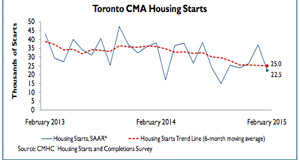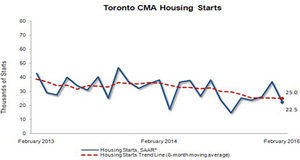On April 23, the Government of Ontario announced new requirements supporting Electronic Vehicle Charging Stations (EVCS) in Condominiums across Ontario. The new rules are set to come into effect May 1.
With approximately 8.5 million road motor Ontario vehicle registrations and only 18,500 electric vehicles currently on the road, what’s up with the race to fast-track EVCS’s into the condominium market of 1.9 million residents?
According to Linda Pinizzotto, Founder, President & CEO of the Condominium Association of Ontario (COA), “We agree with the Province of Ontario’s initiative to fight climate change, conserve energy and reduce greenhouse gas (GHG) emissions under the Climate Change Action Plan, including its short- and long term goals to reduce vehicle emissions by 2020, 2030 and 2050. However, we have concerns the new EVCS installation rules are being driven through too fast and prematurely.
Under the new Condo Act, there are so many changes, such as Boards of Directors requiring certification and mandatory licensing for property managers and property management companies, that condo owners say fast-tracking EVCS into condos is too much, too fast and creating confusion in the condominium world,” says Ms. Pinizzotto “And many condo boards still misguidedly believe their latest obligation under the new regulation is to install and charge EVCS’s to common elements,” she says. This is not factual. There are already too many initiatives taken where Boards and Owners are using the new changes to the Act with negative attentions.
The numbers to support the case for rushing EVCS’s into condos are not adding up yet.
An article published in the Globe and Mail in March 2017 states electric cars are still a niche market, with less than one per cent of global auto sales. While 2017 was a recordbreaking year for EV sales in Ontario, propelled by Ontario’s Electric and Hydrogen Vehicle Incentive Program (EVHIP) to generate interest and sales growth, there’s still a long way to go. Plus EVHIP will no longer be offering incentives for electric vehicles sold in Ontario that retail for over $75,000. In July 2016, the Ministry of Transportation announced Ontario is building almost 500 electric vehicle charging stations at over 250 convenient locations across the province with 24 public- and private-sector partners, scheduled to be in service by March 31, 2017, to create an “unprecedented network of public charging electric vehicle stations in cities, along highways, at workplaces and at various public places across Ontario.”
New concerns hit COA daily from condo owners who feel their rights are constantly being taken away or compromised. COA cautions owners to tread carefully to ensure their boards fully understand the financial implications on owners’ investments, budget impacts and consequences of installing EVCS’s too early. Beware the corporation does have leeway to carry out the installation if: (1) an assessment of the cost is done (2) a notice is sent to owners with prescribed information and (3) certain conditions are met.
Also take heed the corporation could install the system 60 days after sending a notice with the regulated information, as long as owners do not requisition a meeting to vote against it.
Installation by an Owner(s), requires an application to the corporation in writing with specifications and much information. The board has 60 days to respond in writing. The Regulation stipulates the board may only reject an application in very limited circumstances with a report or opinion of a professional in accordance with relevant legislation. Under Section 24.5 (3) (a), the condo management provider or property manager is regulated only to receive an application from owners on behalf of the corporation, but has no further authority to act.
COA advises owners to carefully consider the value proposition to ensure timing is right for your condo community and its demographics before an over-zealous board puts the pedal to the metal and speeds ahead. Ask the tough questions, such as:
- Do the new rules effective May 1st apply to only new developments and buildings under construction (i.e., benefiting developers of new construction)? Or also to existing condominium buildings?
- Will the cost to adapt this program benefit owners first, residents and the community?
- Will there be allowances to use capital from the reserve fund budget or will the expenditures be a direct expense that could cause a rise in condo fees?
- With the pace of innovation, will the products on the market stand the test of time?
- If charging stations are utilized by tenants, who will be responsible for their cost?
And most importantly, make sure your condo board is listening, hearing and not given a licence to unilaterally push through EVCSs that may lead to destination dead-end.
— Condominium Owners’ Association
 TheBulletin.ca Journal of Downtown Toronto
TheBulletin.ca Journal of Downtown Toronto

